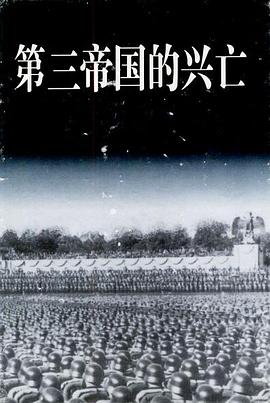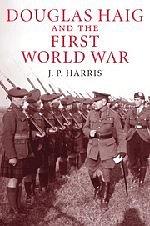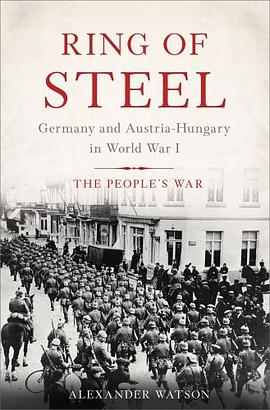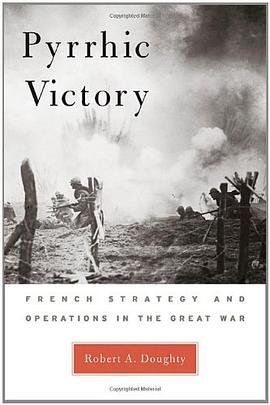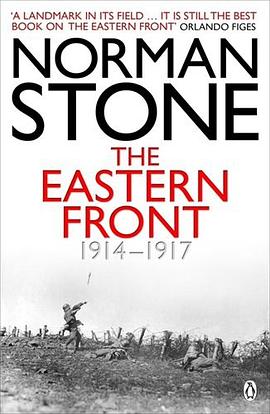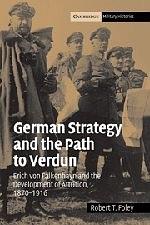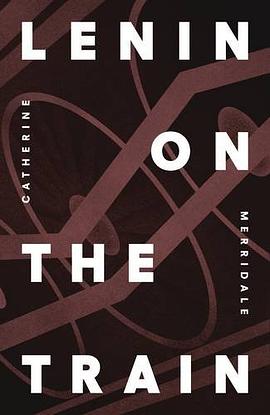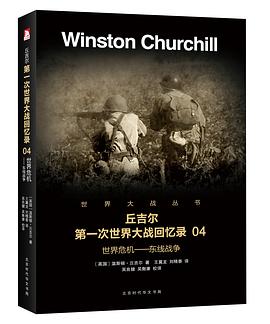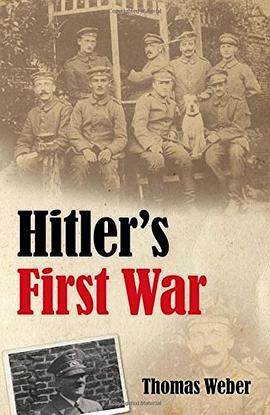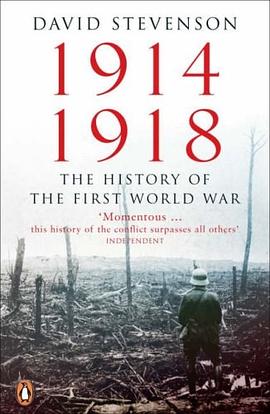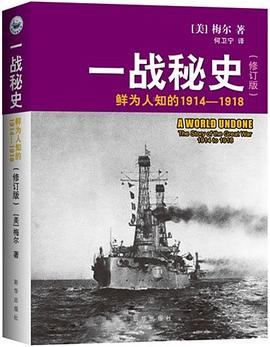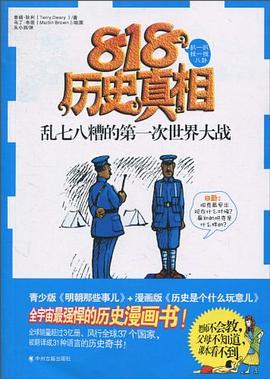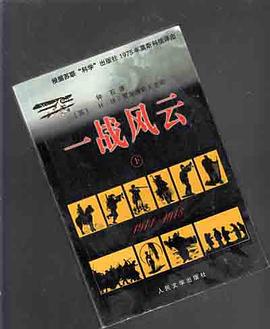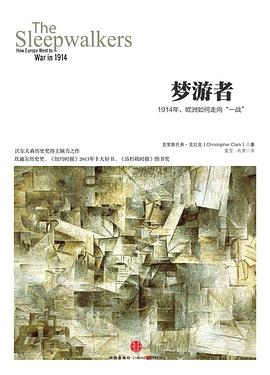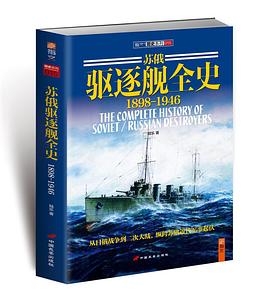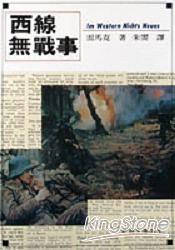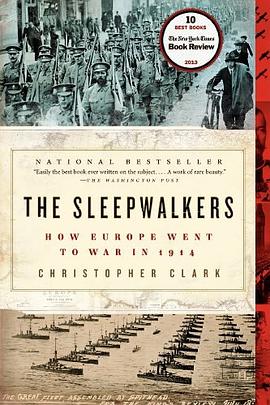

具体描述
One of The New York Times Book Review’s 10 Best Books of the Year
Winner of the Los Angeles Times Book Prize (History)
The Sleepwalkers: How Europe Went to War in 1914 is historian Christopher Clark’s riveting account of the explosive beginnings of World War I.
Drawing on new scholarship, Clark offers a fresh look at World War I, focusing not on the battles and atrocities of the war itself, but on the complex events and relationships that led a group of well-meaning leaders into brutal conflict.
Clark traces the paths to war in a minute-by-minute, action-packed narrative that cuts between the key decision centers in Vienna, Berlin, St. Petersburg, Paris, London, and Belgrade, and examines the decades of history that informed the events of 1914 and details the mutual misunderstandings and unintended signals that drove the crisis forward in a few short weeks.
Meticulously researched and masterfully written, Christopher Clark’s The Sleepwalkers is a dramatic and authoritative chronicle of Europe’s descent into a war that tore the world apart.
- - - - - - - - - - - - - - - - - - - - - - - - - - - - - - - - - - - - - - - - - - - - - - - - - - - - - - - - - - - - - - -
On the morning of June 28, 1914, when Archduke Franz Ferdinand and his wife, Sophie Chotek, arrived at Sarajevo railway station, Europe was at peace. Thirty-seven days later, it was at war. The conflict that resulted would kill more than fifteen million people, destroy three empires, and permanently alter world history.
The Sleepwalkers reveals in gripping detail how the crisis leading to World War I unfolded. Drawing on fresh sources, it traces the paths to war in a minute-by-minute, action-packed narrative that cuts among the key decision centers in Vienna, Berlin, St. Petersburg, Paris, London, and Belgrade. Distinguished historian Christopher Clark examines the decades of history that informed the events of 1914 and details the mutual misunderstandings and unintended signals that drove the crisis forward in a few short weeks.
How did the Balkans—a peripheral region far from Europe's centers of power and wealth—come to be the center of a drama of such magnitude? How had European nations organized themselves into opposing alliances, and how did these nations manage to carry out foreign policy as a result? Clark reveals a Europe racked by chronic problems—a fractured world of instability and militancy that was, fatefully, saddled with a conspicuously ineffectual set of political leaders. These rulers, who prided themselves on their modernity and rationalism, stumbled through crisis after crisis and finally convinced themselves that war was the only answer.
Meticulously researched and masterfully written, The Sleepwalkers is a magisterial account of one of the most compelling dramas of modern times.
Critical Praise
“An important book. . . . One of the most impressive and stimulating studies of the period ever published.” —Max Hastings, The Sunday Times
“Excellent. . . . The book is stylishly written as well as superb scholarship. No analysis of the origins of the First World War will henceforth be able to bypass this magisterial work.” —Ian Kershaw, BBC History
“The most readable account of the origins of the First World War since Barbara Tuchman’s The Guns of August. The difference is that The Sleepwalkers is a lovingly researched work of the highest scholarship.” —Niall Ferguson
“This compelling examination of the causes of World War I deserves to become the new standard one-volume account of that contentious subject.” —Foreign Affairs
“Clark is a masterly historian. . . . His account vividly reconstructs key decision points while deftly sketching the context driving them. . . . A magisterial work.” —The Wall Street Journal
“A monumental new volume. . . . Revelatory, even revolutionary. . . . Clark has done a masterful job explaining the inexplicable.” —The Boston Globe
“Easily the best book ever written on the subject. . . . A work of rare beauty that combines meticulous research with sensitive analysis and elegant prose. The enormous weight of its quality inspires amazement and awe. . . . Academics should take note: Good history can still be a good story.” —The Washington Post
“A meticulously researched, superbly organized, and handsomely written account.” —MHQ: The Quarterly Journal of Military History
“Superb. . . . One of the great mysteries of history is how Europe’s great powers could have stumbled into World War I. . . . This is the single best book I have read on this important topic.” —Fareed Zakaria
“A thoroughly comprehensive and highly readable account. . . . The brilliance of Clark’s far-reaching history is that we are able to discern how the past was genuinely prologue. . . . In conception, steely scholarship and piercing insights, his book is a masterpiece.” —Harold Evans, The New York Times Book Review
“As spacious and convincing a treatment as has yet appeared. . . . Clark’s prose is clear and laced with color.” —The Daily Beast
“A great book. . . An amazing narrative history of the crisis and the larger context.” —Slate
“A superb account of the causes of the first world war. . . . Clark brilliantly puts this illogical conflict into context.” —The Guardian
“This book is as authoritative as it is gripping. . . . Clark provides a vivid panorama of the jostling among Europe’s policymakers. . . . The reader is rapt as ‘watchful but unseeing’ protagonists head for inconceivable horror.” —The Independent
“Excellent. . . . Where Clark excels is in explaining how the pre-war diplomatic maneuvers resembled a giant exercise in game theory.”- —The Economist
“Clark’s narrative sophistication, his philosophical awareness, and his almost preternatural command of his sources make The Sleepwalkers an exemplary instance of how to navigate this tricky terrain. The best book on the origins of the First World War that I know.” —Thomas Laqueur, The London Review of Books
“One of 2013’s finest nonfiction books. . . . Offers more up-to-date scholarship than you’ll find in a classic like Barbara Tuchman’s The Guns of August.” —Matthew Yglesias, Slate
作者简介
Christopher Clark is a professor of modern European history and a fellow of St. Catharine's College at the University of Cambridge, UK. He is the author of Iron Kingdom: The Rise and Downfall of Prussia, 1600-1947, among other books.
目录信息
读后感
好吧,作为草根我正在校对此书的电子版,不得不感谢中信出版社为我提供了这么一个“兴致盎然”的“大家来找茬”游戏。错译,错别字,两手两脚都用上了,还不够用!原书是极好的,有能力的同学还是阅读英文原版为佳,言简意赅,相当棒。可惜引进版煞风景了,出版社出书前必要的...
评分“战争开始了。谁也不知道在哪里又是怎样打起来的,但事情就是这样。它就在人们的脑袋后面,如今,它在人的脑袋后面张开了嘴,正喘着气。战争,就是种种罪恶、声声诅咒,是狂怒的目光,是脑海迸发的思想。战争就在这里,展现在世界面前,使其笼罩在它设置的那张电网下。战争时...
评分内容很详细,但个人感觉条理较乱,很分散。翻译的确算不上很好,作为一本专业书籍,全书注释很少,非专业人士看这本书还是需要一些其他辅助材料配合。
评分丘吉尔说过,一战最神秘的就是开头,到底怎么爆发的。传统的观点是,德国蓄意发动了一战。可后来的历史学家大多倾向于认为德国确实最轻率鲁莽,但谈不上有事先的周密计划。 Christopher Clark在 The Sleepwalkers这本书中认为,“一战的爆发是一场悲剧,但不是一桩罪行。”德国...
评分丘吉尔说过,一战最神秘的就是开头,到底怎么爆发的。传统的观点是,德国蓄意发动了一战。可后来的历史学家大多倾向于认为德国确实最轻率鲁莽,但谈不上有事先的周密计划。 Christopher Clark在 The Sleepwalkers这本书中认为,“一战的爆发是一场悲剧,但不是一桩罪行。”德国...
用户评价
audio book
评分国际关系史杰作,分析透彻,条理清晰,不偏不倚,出色地诠释了一战的复杂成因与悲剧性。惟行文过长、人物众多,如叙事更精炼些并添加人物表便可大大降低阅读难度。
评分国际关系史杰作,分析透彻,条理清晰,不偏不倚,出色地诠释了一战的复杂成因与悲剧性。惟行文过长、人物众多,如叙事更精炼些并添加人物表便可大大降低阅读难度。
评分国际关系史杰作,分析透彻,条理清晰,不偏不倚,出色地诠释了一战的复杂成因与悲剧性。惟行文过长、人物众多,如叙事更精炼些并添加人物表便可大大降低阅读难度。
评分国际关系史杰作,分析透彻,条理清晰,不偏不倚,出色地诠释了一战的复杂成因与悲剧性。惟行文过长、人物众多,如叙事更精炼些并添加人物表便可大大降低阅读难度。
相关图书
本站所有内容均为互联网搜索引擎提供的公开搜索信息,本站不存储任何数据与内容,任何内容与数据均与本站无关,如有需要请联系相关搜索引擎包括但不限于百度,google,bing,sogou 等
© 2025 book.wenda123.org All Rights Reserved. 图书目录大全 版权所有

